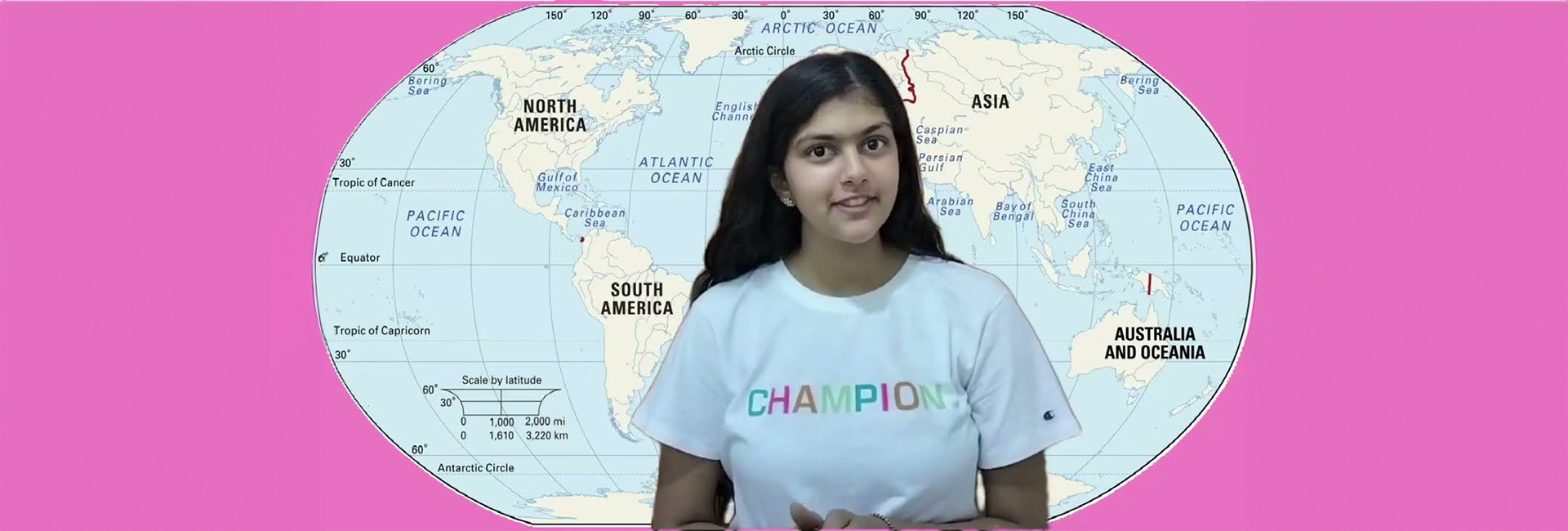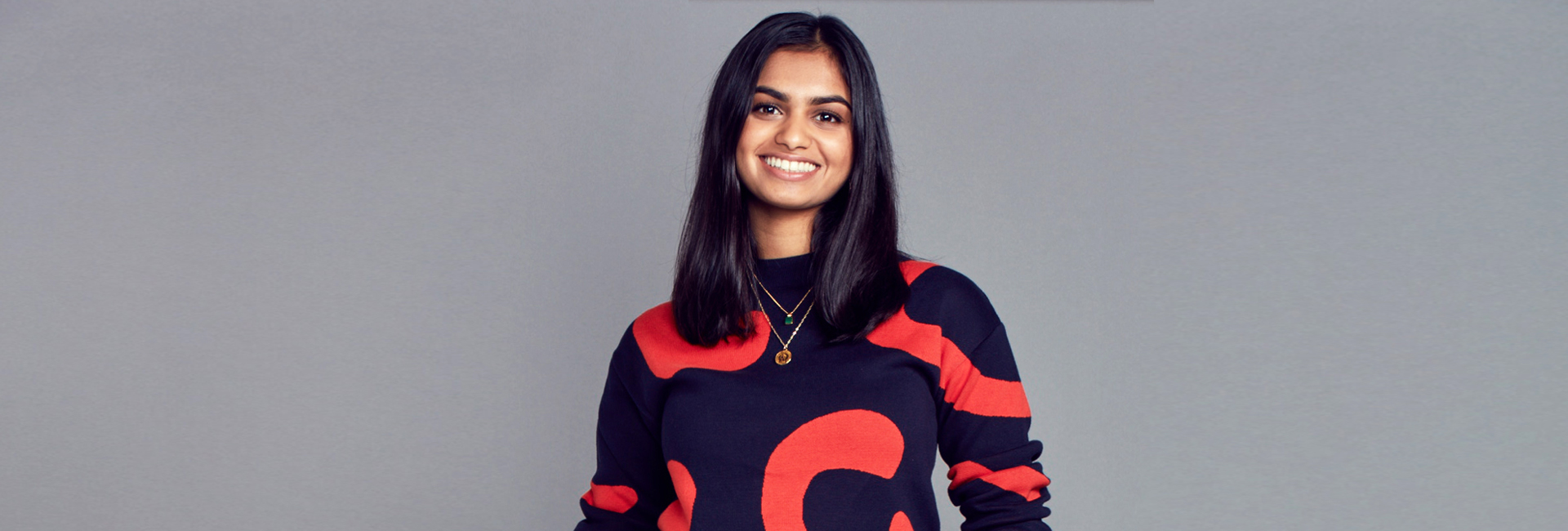(December 8, 2024) At just five years old, Madhvi Chittoor watched a documentary about a Pacific island covered in plastic waste. Birds were eating trash, fish swam in polluted water, and the beauty of the island was destroyed. For Madhvi, this was more than just upsetting—it was a moment that changed her life. “I told my mom, This is so sad. I want to do something,’” she said. Madhvi, now 13, has turned that moment into a mission. Growing up in Arvada, Colorado, she has become a well-known environmental activist. Her efforts to protect the planet have reached her community, her state, and even international stages, including Time’s Kid of the Year 2024 Honoree List.
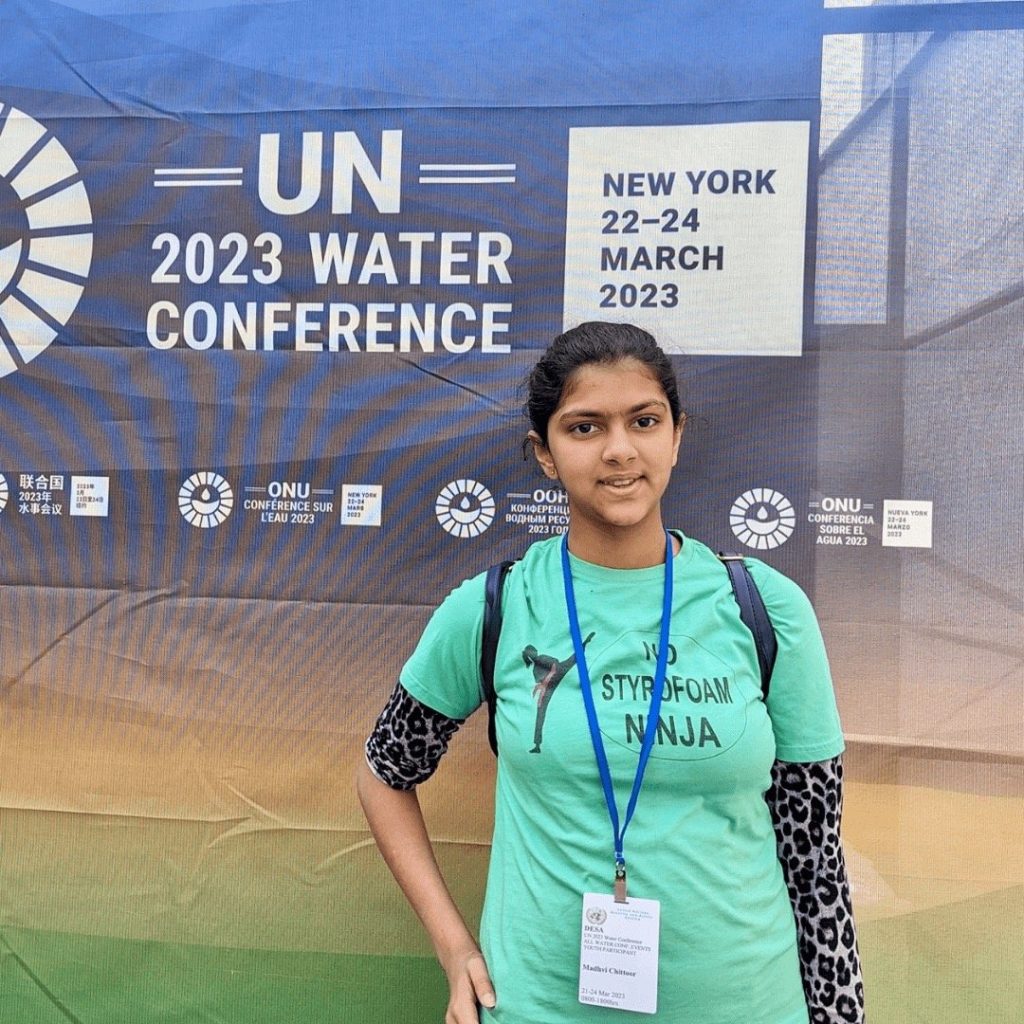
Madhvi Chittoor
Starting with Plastic Pollution
Madhvi’s first fight was against plastic waste. She and her mother, Lalitha, woked together to organise river cleanups and raise awareness about single-use plastics. At just seven years old, Madhvi convinced Jefferson County Public Schools to stop using Styrofoam lunch trays and switch to compostable ones. This change kept 7.6 million trays out of landfills each year and earned her the nickname “No-Styrofoam Ninja.”
She didn’t stop there. In 2021, Madhvi pushed for a statewide ban on single-use plastic bags and Styrofoam containers. She worked with mayors, gathered signatures, and spoke at public events. “If they say no once, keep going and keep asking,” she encouraged others. Her hard work paid off when Colorado passed the law, a big win for the environment.
Taking on Fossil Fuels
As Madhvi learned more about plastic pollution, she discovered its link to fossil fuels. This led her to focus on the bigger issue of fossil fuel development. Two years later, she and her mother began fighting against Civitas, a company that planned to drill 166 oil and gas wells near Aurora, Colorado. “My rights as a child for clean air, clean water, clean soil, clean food, and great health are at jeopardy,” she said.
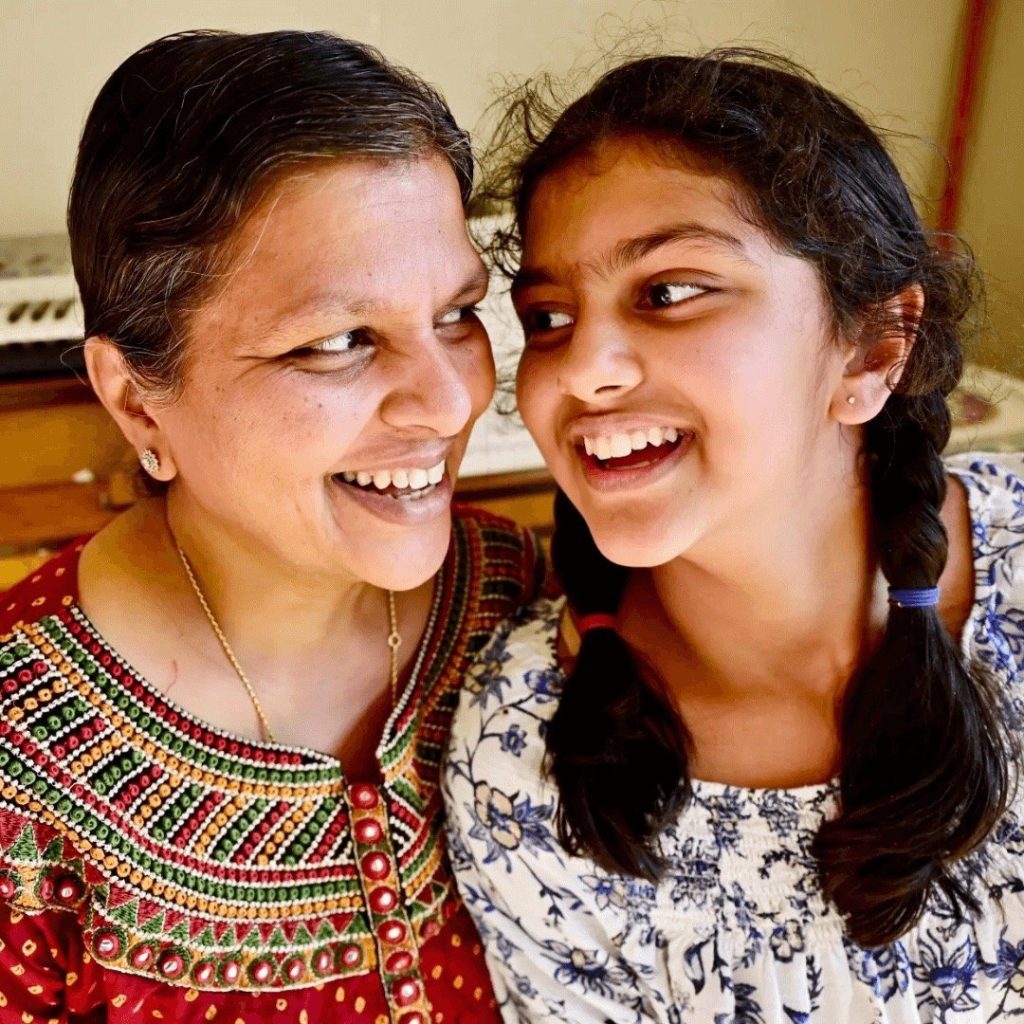

Madhvi Chittoor with her mom
Madhvi attended hearings, studied environmental reports, and rallied the community to speak out against the project. She told the state’s Energy and Carbon Management Commission, “Pollution knows no borders,” urging them to prioritise health and the environment over profits. Although the project was approved with conditions, Madhvi vowed to keep fighting.
Speaking to the World
Madhvi’s work has taken her beyond Colorado. In 2022, she became the youngest advisor to the United Nations Committee on the Rights of the Child. She has also founded her nonprofit, Madhvi4EcoEthics, to help spread her message of protecting the planet.
She even presented her ideas to Vice President Kamala Harris, sharing her Global Plastic Policy Campaign. This campaign influenced the US to support a global plastics treaty, a step forward in reducing plastic waste worldwide.
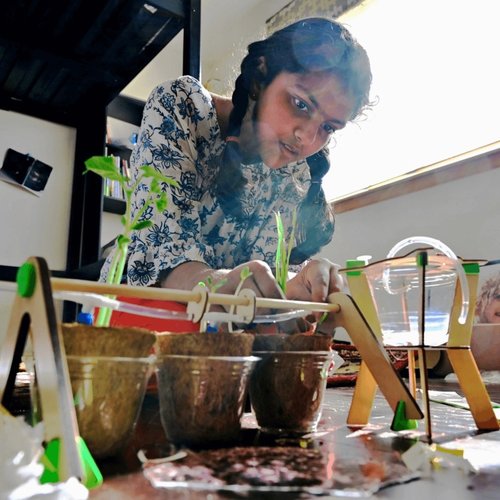

Madhvi Chittoor
Recognized by TIME Magazine
In 2024, Madhvi’s dedication was recognized by TIME magazine, which named her one of its “Kid of the Year” honorees. The award celebrated her leadership in environmental activism and her efforts to inspire others. Colorado Governor Jared Polis praised her work, saying, “We are proud to have young people like Madhvi who are working to protect this place we love now and for future generations”
For Madhvi, the recognition wasn’t a reason to stop. “There’s still more that needs to be banned, like [PFAS] in toilet paper and cleaning products,” she said, highlighting her plans to continue advocating for change.
A Team Effort with Her Mom
Much of Madhvi’s success is due to the support of her mother, Lalitha. Lalitha left her career in tech to help Madhvi full-time. She manages emails, sets up meetings, and helps Madhvi prepare for speeches and events. “Our interests have matched,” Lalitha said, reflecting on how their teamwork has strengthened Madhvi’s efforts.
Looking Ahead
Despite all her achievements, Madhvi stays grounded. She balances her activism with hobbies like playing the violin, writing music, and practicing martial arts. She also dreams of becoming a doctor one day.
Even as she considers her future, Madhvi remains committed to her cause. “I will keep fighting against every single well,” she said about the Civitas project, showing her determination to stand up for the environment
Madhvi’s journey shows how one person, no matter how young, can make a difference. Starting with a simple desire to help, she has become a strong voice for protecting the planet. As Madhvi puts it, “We are the guardians of the Earth. It’s our responsibility to take care of it for future generations.”
